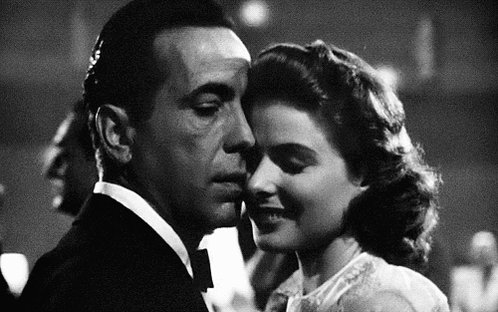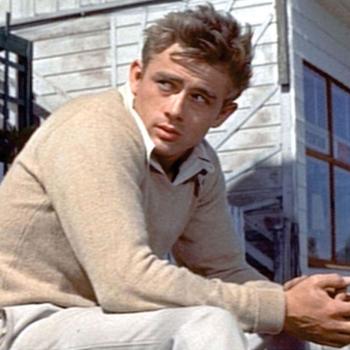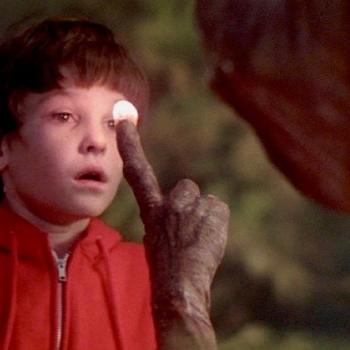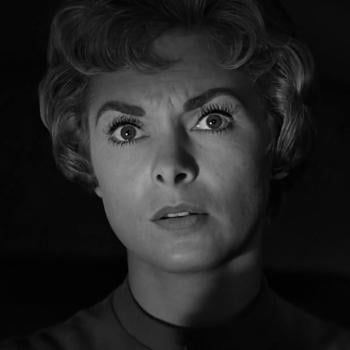
Someone let me know: were airports even locales of such sweeping romance before 1942? Before Michael Curtiz made Ingrid Bergman and Humphrey Bogart turn them into these ancestral temples of elemental amour? This altar for confessions of love of the deepest degree?
If you don’t know what I’m talking about, the 1942 masterpiece Casablanca sees Rick Blaine as a night club owner in Casablanca–the thriving city in Morocco, and the last stop for those fleeing the Nazi spread across the Eastern world. Though Rick professes neutrality in all things, Rick’s contacts put him a unique position to facilitate who is granted escape from Casablanca and the Nazi vultures who lurk there.
Rick is also deeply cynical, which multiple characters remark upon, early and frequently. Hearing the news that two runaways have been gunned down by the Nazis, he remarks that they should be grateful to finally be counted as the honored dead. His dark affect poses the question … can anything move his heart?
Turns out, yes: a soulful young woman named Ilsa, whom Rick once loved before her abrupt departure. Rick finds her again in Casablanca when she comes to Rick asking for safe passage to America … with her husband, Victor … her husband, who happens to be an immensely inspirational figure in the movement against the Nazis and a key player in the war that is ravaging the world. The choice is Rick’s whether he will allow Ilsa to leave with her husband so he can continue his work fighting the Nazis or give Victor away to the Nazis so that Ilsa can finally be his.
Though the film hinges on his nihilism, Rick was once a romantic, an idealist. He championed the underdog and devoted his efforts to “lost causes.” But after Ilsa left him in Paris, he lost this light. Ilsa coaxed Rick out of the shadows with a love of unrivaled pureness, and so the punishment for his vulnerability was proportionally devastating on his heart. When she finds him again in Casablanca, Ilsa says upfront that the hatred Rick has accumulated in the intervening years has transformed him, such that she does not recognize the man she fell in love with back in Paris.
The story essentially places Rick in the position to finally achieve the one thing that could bring happiness to his cynical heart, and all he has to do is turn Victor over to the Nazis and leave the fighting world without one of its most influential leaders. As the powers of balance shift in Casablanca, there is a moment where it looks like Rick is going to get exactly what he wants–Victor even asks Rick to run off with Ilsa and leave him behind so his wife will be safe–but getting in touch with that part of himself that was romantic and altruistic has its own consequences. Cue: one of the most iconic romantic endings of all time.
Something that the film doesn’t state explicitly but feels like an organic extrapolation is that Rick getting what he wanted (re: a life with Ilsa) probably would not have stirred this necessary awakening in him. Without giving himself over to the world that needed him, just as much as it needed Victor, Rick’s heart still would have been wounded, and it would have continued to calcify. Rick did not need to collect his love object in order to be whole, he needed to feel and care for something larger than himself. In letting Ilsa go, Rick does this twice over, surrendering his own desires for the sake of the woman he loves and for the world that depends on his selflessness. The effects of this gesture of good faith are seen almost immediately, inspiring a moment of genuine goodness in Captain Renault when he chooses not to turn in Rick for letting Victor go, offering something like a redemption. (That’s lowercase ‘r’ redemption. The guy is a Nazi.)
The pursuit of happiness is a funny thing. It’s very human to seek after the things, or the people, that bring us happiness. But tethering our happiness to these things does not make us whole. It is difficult to hold onto people. But principles are ours to keep, if we choose. And is there any principle more powerful than the love of your fellow man?














